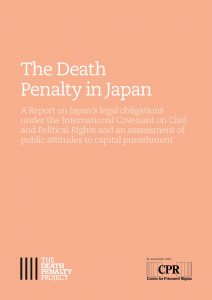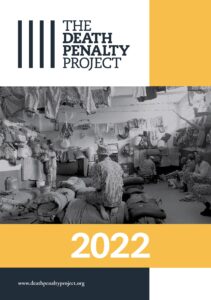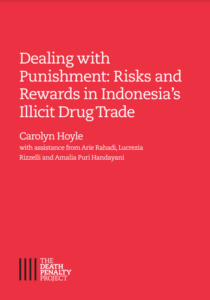The Death Penalty in Japan (2013)
- Reports and Studies
- 13 Mar 2013
This report, produced in collaboration with the Centre for Prisoners’ Rights, examines Japan’s death penalty from two perspectives. The first is a doctrinal approach to capital punishment based on human rights principles enshrined in international human rights law. The second perspective critically explores the notion that majority public support for the death penalty is an obstacle to abolition.
Part One of the report highlights significant gaps between Japan’s obligations under the International Covenant on Civil and Political Rights (ICCPR) which Japan ratified in 1979 and The Safeguards Guaranteeing the Protection of the Rights of those Facing the Death Penalty, first agreed by the United Nations in 1984, and current Japanese law and practice. It makes many recommendations for change, including these:
- Eliminating the death penalty for crimes not involving deliberate intent to kill
- Abolishing the system of “substitute imprisonment” (daiyo kangoku) and replacing it with a system that provides effective judicial control over the use of pre-trial detention, the length of which needs to be dramatically reduced
- Strengthening procedural protections in the trial and appellate processes
- Providing all persons sentenced to death with an effective and mandatory right of appeal, and with the provision of legal assistance at all stages of the appeals process, including retrial
- Providing full access to a fair and functioning process of executive mercy
- Staying all executions while a retrial or application for clemency is pending
- Improving conditions on death row and the treatment of death row prisoners
Part Two of the report describes differences between the apparent “strong public support” found by government surveys and the more complex sensibilities revealed by more sophisticated assessments of public attitudes toward capital punishment. It argues that:
- Japan’s governmental surveys have serious methodological problems. Thus, the government should recognise the superficial representations of public opinion derived from its own surveys
- Findings from three independent studies demonstrate that a considerable proportion of the Japanese public do not have strong or firm views toward capital punishment
- People who express strong support for capital punishment often modify their position in response to new information
- There should be an independent academic inquiry into issues related to the death penalty and deterrence rather than continued reliance on unquestioned public beliefs
This report demonstrates an urgent need for Japan’s government and judiciary to reform several of their current positions on capital punishment, prior to its complete abolition.
This report is available in English and Japanese.





